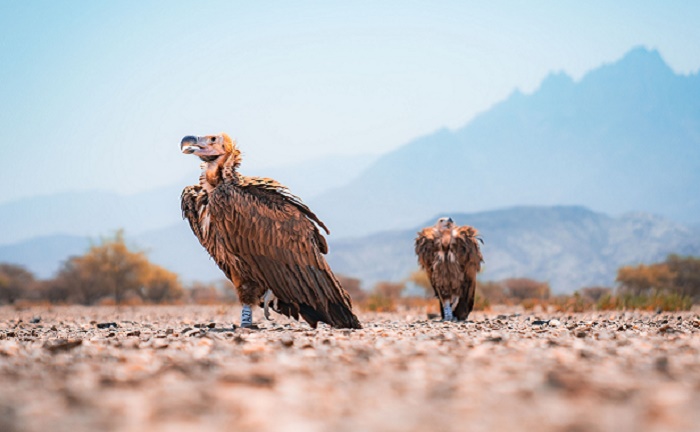
16 of the 23 species of vultures found worldwide are at risk of extinction, and Oman is home to two of them.
Muscat: The Environment Society of Oman, in collaboration with the Environment Authority, recently hosted international vulture experts, together with key stakeholders across Oman to discuss vulture and raptor-focused conservation within the Sultanate. 16 of the 23 species of vultures found worldwide are at risk of extinction, and Oman is a stronghold for two of them, which presents the opportunity to take important steps to support their survival.
74 participants, representing over 19 different organizations (Government and non-government) came together to learn about the important vulture research ESO, the Environment Authority and other stakeholders have been undertaking and to explore the role that Oman can play in the conservation of this endangered species. Throughout the workshop, rangers and staff from the Environment Authority, representing the various vulture breeding habitats, were able to learn about the importance of vultures to our ecosystem, and made aware of the level of international attention Oman receives from the global conservation community for the survival of the species.
Presentations from international vulture experts, Dr. Michael McGrady, Director of International Avian Research, André Botha,co-chair of the IUCN Vulture Specialist Group, and Dr. Umberto Gallo Orsi, Programme Officer of Convention on Migratory Species Raptors MoU, highlighted the international significance of vultures, the existing global and regional conservation frameworks and provided an overview of threats to all species in Oman, including poisoning, collision and a decline in food and habitat availability.
Dr Michael McGrady, Director, International Avian Research, said, “There is a need for cross-cutting conservation actions to address the problems our native species are facing. The first step is to increase our knowledge and understanding of the current situation”.
Saleh Al Saadi, Director of Biodiversity at the Environment Authority added, “This workshop is part of the process for raising awareness and developing a long-term strategy for conservation action and working together to provide a safe environment to protect endangered species in Oman.”
After the workshop, four Lappet-faced vultures were ringed, fitted with satellite tags and released back into the wild at Al Sareen Nature Reserve. The released vultures will be closely monitored to observe their movements and behaviour to ensure they successfully reacclimatise to the wild.
Suaad Al Harthi, Executive Director of ESO, said, “Releasing wild species into the wild is always linked to a high level of uncertainty, especially if they have been kept in captivity for a long time. If they successfully adapt back into the wild, the four vultures will contribute to the replenishment of the species.”







